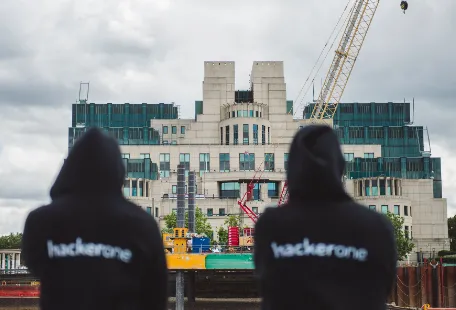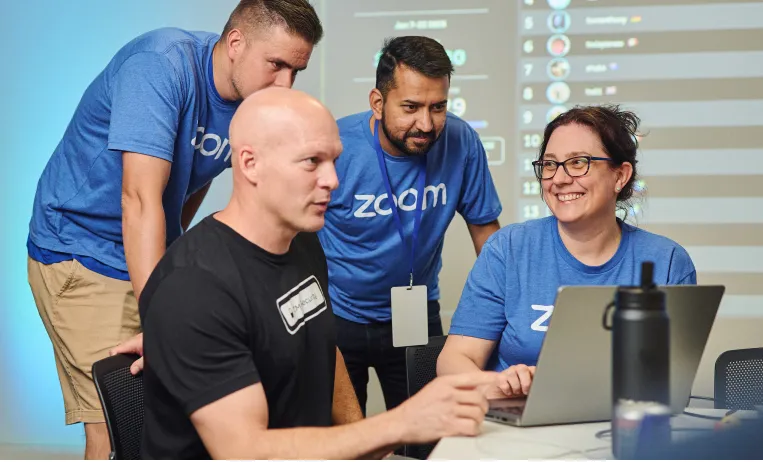Ethical Hacking: Unveiling the Power of Hacking for Good in Cybersecurity

Originally published on the Amazon Web Services Conversations With Leaders podcast blog.
In an era where data breaches and cyberattacks dominate headlines, a new and unconventional approach to cybersecurity has emerged, challenging traditional notions of protection. Ethical hacking, also known as hacking for good, is rapidly gaining prominence as organizations seek innovative strategies to safeguard their digital assets. This approach involves companies hiring skilled hackers to intentionally breach their systems, identify vulnerabilities, and fortify defenses.
On a recent episode of Amazon’s “Conversations With Leaders,” Marten Mickos, CEO of HackerOne, sat down to discuss the evolving landscape of cybersecurity, the challenges organizations face, and the innovative strategies employed to build robust security cultures.
Marten believes the essence of hacking for good lies in harnessing external hackers to identify vulnerabilities in web systems and mobile apps, enabling companies to rectify these issues before malicious actors exploit them. This “good force against bad force” approach promotes a proactive stance in enhancing security.
Ethical hacking represents a paradigm shift in cybersecurity philosophy. Organizations embrace proactive and collaborative tactics instead of relying solely on reactive measures to counteract threats. By welcoming skilled hackers into their ranks, they aim to detect weaknesses before malicious actors can exploit them.
Ethical hackers, often called “white hat”, operate with integrity and a robust code of conduct. Their mission is to expose security vulnerabilities and potential entry points within an organization’s digital infrastructure. Unlike malicious hackers, ethical hackers use their skills for constructive purposes, ultimately enhancing the security posture of the organizations they engage with.
Challenges are associated with hiring and retaining skilled security professionals in this industry. According to Marten, the solution is to create an environment where employees find meaning, autonomy, and opportunities for growth. A culture that nurtures career development and offers purposeful work can attract and retain top talent.
The Hacker Community: A Vast Pool of Expertise
A critical element that sets ethical hacking apart is its emphasis on collaboration. Ethical hackers often form communities that share knowledge, techniques, and best practices. These communities foster a supportive environment that encourages continuous learning and skill development. Organizations benefit not only from individual ethical hackers’ expertise but also from the collective knowledge of the broader community.
Companies like HackerOne have capitalized on this collaborative model, acting as intermediaries between organizations and ethical hackers. Organizations can post bug bounties through their platform, rewarding hackers who successfully identify vulnerabilities. This approach incentivizes hackers to participate in uncovering weaknesses, creating a win-win scenario for both parties.
With many potential security measures available, organizations need help prioritizing their actions effectively. Marten recommends adopting a risk-based approach focusing on essential actions aligned with business objectives.
Fostering a Positive Security Culture
While ethical hacking might sound counterintuitive, its value is increasingly evident. Data breaches and cyberattacks can result in significant financial losses, reputational damage, and legal ramifications. By investing in ethical hacking, organizations take proactive steps to prevent these scenarios. Identifying vulnerabilities before they are exploited can save companies millions of dollars in recovery costs and potential fines.
Marten draws parallels between cybersecurity and the airline industry’s safety practices. There is an emphasis on fostering a blameless culture, where mistakes are treated as learning opportunities rather than causes for retribution. This promotes open communication and rapid issue resolution.
Marten believes that the need to transform security from a roadblock to an enabler of business growth is critical for hacking for a good approach to be successful. By promoting a positive view of security, organizations can encourage employees to participate in security initiatives actively. CEOs should set the tone by highlighting security’s role in enabling business success.
Cybersecurity’s asymmetric nature demands a different approach than the standard business practices used in most organizations. Collaboration with external hackers allows organizations to tap into an immense pool of expertise that can help identify vulnerabilities quickly. This method provides flexibility and rapid access to diverse skills, ensuring a well-rounded security posture.
A Future of Enhanced Cybersecurity
As the hacking for good industry gains momentum, it reshapes how organizations approach cybersecurity. The emphasis on collaboration, transparency, and a proactive defense departs from the traditional reactive model. Ethical hacking is a testament to the power of harnessing skilled individuals for the greater good — using their expertise to strengthen digital fortifications, safeguard sensitive data, and propel the cybersecurity industry into a new era of resilience.
In an increasingly interconnected world, ethical hackers are emerging as unsung heroes, leveraging their talents to prevent data breaches and protect the digital foundations of modern society. As organizations continue to navigate the complex realm of cybersecurity, ethical hacking stands as a beacon of innovation and a testament to the remarkable potential of technology when used for positive and transformative purposes.
To hear the full “Conversations with Leaders” episode, click here.


